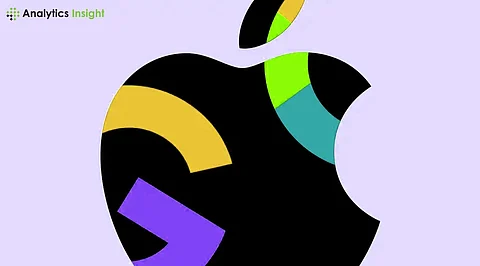

Apple and Google, two of the biggest technology companies in the world, share a unique relationship that involves both competition and collaboration. This is especially visible in their work on artificial intelligence (AI), where both companies want to lead the industry while even working together at times.
At the early stages of the iPhone, Google's CEO, Eric Schmidt, was on Apple's board and even joined the stage when Apple launched its first iPhone in 2007. But then came the time for rivalry as Google launched Android, a mobile operating system, which became the direct rival to Apple's iOS. Despite this competition, Apple and Google have continued to do business together.
One of the most important deals between them is making Google the default search engine on Apple’s Safari browser. In 2021, analysts estimated that Google paid Apple around $15 billion for this deal, and this amount is expected to rise to $18–$20 billion in the coming years.
As AI technology becomes more important, both Apple and Google have been investing heavily in this field. Google launched its AI model, Gemini, to compete with other AI platforms like ChatGPT. In March 2024, reports suggested that Apple was in talks with Google to use Gemini in iPhones. This shows that Apple recognizes the need to improve its AI capabilities, and it might do so by partnering with a major competitor.
If this partnership happens, it could make Siri, Apple’s voice assistant, much smarter and more useful. Siri could provide better answers and perform more complex tasks, improving the user experience. AI integration could also improve Apple’s Shortcuts app, making automation easier and more efficient for users.
The close relationship between Apple and Google has caught the attention of regulators. In 2023, an antitrust trial against Google revealed that searches related to iPhones were among the most profitable for Google’s advertising business. The US Department of Justice argued that Google’s deal with Apple, which makes Google the default search engine, could be unfair to competitors like Microsoft’s Bing and DuckDuckGo.
Microsoft’s CEO, Satya Nadella, even testified that if Bing’s market share increased by just 1%, Microsoft could earn an extra $2 billion in search revenue. This shows how powerful the Apple-Google partnership is and why regulators are concerned about its impact on fair competition.
As of February 2025, the future of Apple and Google’s AI relationship remains uncertain. If they collaborate, users could benefit from better AI-powered features on Apple devices. However, competition, regulatory challenges, and innovation goals will continue to shape their decisions.
In the fast-changing world of AI, Apple and Google will likely continue their mix of rivalry and partnership. Whether they work together or compete, their actions will have a huge impact on the future of AI and how people use technology in their daily lives.
